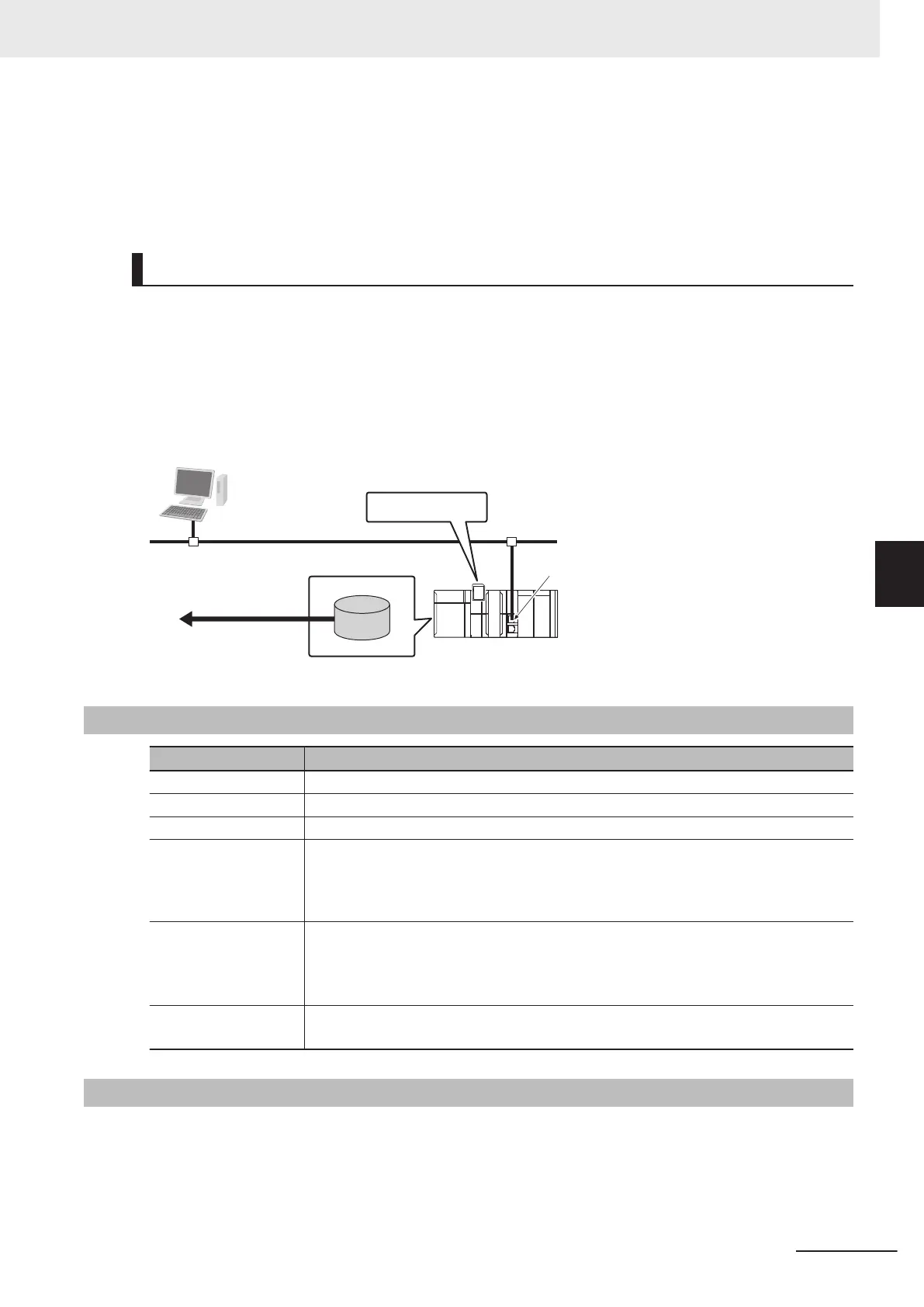The built-in EtherNet/IP port SNMP agent function supports SNMPv1 (RFC1157) and SNMPv2C
(RFC1901).
Use the SNMPv1 or SNMPv2C protocol to manage the built-in EtherNet/IP port with the SNMP man-
ager
. You can also use both the SNMPv1 and SNMPv2C protocols together at the same time.
SNMP Traps
When a failure or some other specific problem occurs, a status report called a trap is sent.
This enables monitoring changes in status even if the SNMP manager does not monitor the built-in
EtherNet/IP port periodically
.
However, traps use UDP. Therefore, you cannot check to see if the SNMP manager receives traps
from the EtherNet/IP port.
Thus, depending on the network status, some traps may not reach the SNMP manager.
Built-in Ether
Net/IP port
SNMP manager
Trap
SNMP agent
MIB
Contr
oller power supply
turned ON.
14-1-2
Specifications
Item Specification
Protocol SNMP
Agent SNMPv1, SNMPv2c
MIB MIB-II
Port No. SNMP agent: 161 (UDP)
SNMP trap: 162 (UDP)
These can be changed in the Built-in EtherNet/IP Port Settings from the Sysmac Stu-
dio.
Timing of SNMP trap
operation
Status reports are sent to the SNMP manager at the following times.
• When the Controller is turned ON
• When links are established
• When an SNMP agent fails to be authorized
Supported MIB com-
mands
GetRequest/GetNextRequest
14-1-3
SNMP Messages
The structure of SNMP messages is as follows:
14 SNMP Agent
14-3
NJ/NX-series CPU Unit Built-in EtherNet/IP Port User’s Manual (W506)
14-1 SNMP Agent
14
14-1-2 Specifications

